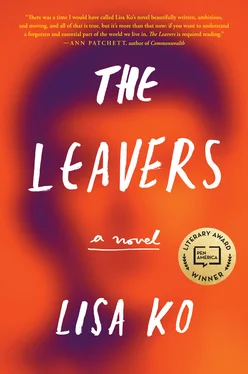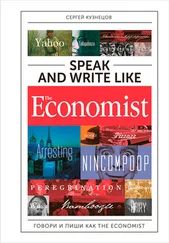Leon came to Chinatown from the Bronx, took us out to lunch on a street near the Manhattan Bridge. The cook knew him from his ship loading days back home, and the customers hunched over round metal tables that faced windows beaded with salty broth, steam eking onto the sidewalk. Three noodle shops on one short block, sweating and striving beneath the bridge’s tail, each shop with its own specialty, beef broth, chicken broth, pork broth, lamb. Here there was only one dish, noodle soup with lamb.
“ Sst, ” Leon said, and a man in an apron stood up from behind the counter, dough stretched between his arms. Leon held up three fingers and pulled out stools. Spilled soup splashed our toes. The waitress set our bowls down with plastic cups of tea, wiping the liquid on the table with a dishcloth, and we slurped, sucking soft chunks of meat between our teeth. Chewy and thick, the noodles were perfect; the soup tasted like a favorite memory. Your face shone with pleasure. Leon burped and put down money for the meal.
“Where are we going now?” you asked.
Leon looked at his phone and calculated the time left before his shift. “You like boats?”
“Yi Gong used to have a boat,” you said. “Are we going fishing? Yi Gong used to fish.”
“You don’t want to eat the fish in this river,” Leon said. “The fish here comes out with two heads.”
The snow was melting, its surviving remnants peppered with dirt beneath icy top crusts. “To the bottom of Manhattan,” Leon shouted. It was the Staten Island Ferry, a bright orange boat braying a hippopotamus honk. We stood on the deck as it shambled through the water, me with my arms around you, Leon with his arms around me.
Leon had been in America for nine years and his English still sucked. But the fees had been lower when he came over, so he had already paid off his debt. I kept asking myself if I should go for a guy who could get me a green card, or find one who liked to read newspapers and could help improve my English. It drove me crazy that Leon spat on the sidewalk, pushed onto subways as people were trying to get off, cut lines for cash registers like he was still in Fuzhou. But the way he strung his curses together in dialect, quick like running water, his striking familiarity, made me laugh and join in. He listened to me complain about work, and even if he didn’t have a lot of money, he bought me food, spent time with you. I saw how happy he made you. We walked around Central Park, Battery Park, Madison Square, and he liked seeing trees and water, had also grown up around fishermen and farmers. Yi Ba would’ve liked him; he’d never be mistaken for soft. And look at the man. Who else — besides you — had made me feel wanted, singular, different?
On the boat, Leon whispered so only I could hear. “What if you lived with me, Little Star? You and Deming?”
I wanted to remember this moment even as it was happening, to imagine it as already gone.
SPRING WAS NUDGING IN, the streets fuller, noisier, the city flung open with new colors and lights. We walked, hand in hand, after I picked you up from school.
“Can I have a plane?” you asked. “There’s a plane I saw, in a book.”
“You took a plane here, to New York. Did you like it?”
“I was sleeping.”
“One day, you’ll take another one.”
“Where?”
“Anywhere. Around the world.”
The bakery had lime green lamps shaped like helmets. We ordered bubble tea in fluorescent colors and pierced the tops of our cups with oversized straws. “Drink your tea,” I said. “Don’t blow bubbles.”
You made a farting sound with your lips. “I like tea.”
“Do you like New York?”
You sucked up more tea and eyed me across the table as you blew a soft, loose bubble. “Yes.”
“What do you like about it?”
“Subway.”
“Do you miss China?”
Shrug.
“Do you miss Yi Gong?”
“Yeah,” you said in English.
“Me, too.” I pushed my straw against the bottom of my cup. “Do you like Leon?”
“He plays with me.”
“You can call him Yi Ba. He says he won’t mind.”
You stared at me as if you were tasting the word, trying to figure out if you liked it or not.
“Next month, we’re going to move to a bigger apartment and live with Leon and his sister Vivian. It’s not far away, in a part of the city called Bronx. There will be another boy for you to play with, Leon’s nephew. His name is Michael.”
“How old is he?”
“Around your age. I think he’s five.”
You scowled. “I’m six .”
“I know you are.” Thick shocks of hair erupted around your face, as if in protest. I walked to the other side of the table and squeezed into your seat with you. “We’re going to move in with Leon, but we’ll always be a family, Kid, you and me.”
You blew bubbles into your tea, made another farting noise, and giggled. Your face became serious. “Is Auntie Didi coming, too?”
THE APARTMENT WAS TOO small for all of us. Me, you, Leon, Vivian, and Michael. Michael’s father, Leon said, had been a good-for-nothing Taiwanese with no papers who’d split on Vivian long ago.
My roommates had said the Bronx was dangerous and not enough Chinese people lived there, but when we arrived on an April morning and I looked at the signs in English and Spanish — not a single Chinese character anywhere, not even at the take-out spot down the block — I felt like I’d been in rehearsal all this time and this was the real thing. It had taken six years, and I was still in the same city, but finally, I had gone elsewhere. Another woman was already waiting to take my bunk on Rutgers Street.
Leon and I slept on one mattress in the bedroom, you and Michael on the other, Vivian on the couch. It cost a hundred dollars more a month to live with Leon than it did to live in the boardinghouse, but I could take on more hours at the salon, since when you came home from school, Vivian or Leon took care of you and Michael.
Opposite-world Leon, he woke with the moon. The city buses would screech and hump across the Bronx, Leon slouched on one of their back benches, riding to the edges of Hunts Point. For a living, he dealt with the dead. He deboned ribs, pigs shrinking from whole animals into separate parts: belly, shoulder, intestines, from pig to pork. Boots coated in blood, gloves slippery with innards, Leon sliced at slabs, cleaved bones from muscle. On the kill floor, swinging from giant hooks, the hogs were stunned with electric shocks, their necks severed, scraped clean. The disassembly line. Sometimes I saw these animals in my sleep. The frozen pig, dazed and muted, the hog heads with their gaping mouths, all those groaning ghosts. Leon swore off sausage, ham, bacon. What separates the pig from the person? In bed he’d name my parts and chops, trace my cuts of meat with his fingers — leg, loin, ribs, rump; the skin around my belly — until I squirmed. “Stop!”
We were all meat. Fat and gristle and tendon and bone. Cartilage and muscle, thighs and breasts. Leon had come over as a stowaway, washed ashore in New York on a garbage barge of old computers. The ship had sailed around the world, China to Thailand to Mexico, across the Pacific, but riding in the cargo Leon never saw ocean. Back when he came, you could enter without papers and customs would release you into the streets; there was nowhere for them to detain you. You’d get an order to appear in court and rip it up and throw it away when you hit the sidewalks, hail a cab to Fuzhounese Chinatown and fade sweetly into the crowd.
“Is it scary being with a man who kills?” Didi asked, and I said I supposed it would be, but Leon didn’t kill, and despite how broad his back was, how his shoulders and arms could choke you, he was a gentle person. When he came home from work he took long showers, crawled into bed and dampened the sheets, climbed over me and onto me, pressing his weight into mine. It soothed me. He talked in his sleep, mumble-spoke, and at first it had confused me. “No,” he would laugh, and I would say “Yes,” clear awake, translating his mumbles to the language I wanted to hear.
Читать дальше











